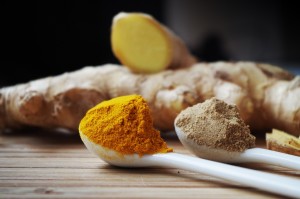Cardio versus Weight Training To Burn Calories
Cardio versus Weight Training To Burn Calories
Should I do cardio or weight training to lose weight is a common question.
There are many reasons anyone may want to lose weight. They may be wanting to lose weight to achieve better health, to look better in clothes, improve chances of finding the right relationship, be able to do more with family and many others.
When discussing weight training as a way to lose weight many are concerned they will gain muscle and actually look bigger. Making weight training a routine part of your exercise regimen will result in the building of muscle. Initially, it may seem you are not making any progress from a weight loss standpoint; however, if you stick with it you should start noticing changes such as clothes fitting better, more muscular tone, and an increase in energy.
Weightlifting can be an incredibly powerful tool when it comes to losing weight and may just be what is needed to give your weight loss program the boost it needs.
If you want to learn more about how weight training may help you start losing weight right away and move forward to achieve your weight loss goals:
Does Weight Training Help You Burn Fat
Weight training is not typically looked at as an aerobic activity
Weight training primarily utilizes the glycogen system for producing energy, your heart rate will increase during weight training exercise, and if you workout for about 40 minutes you should burn about 500 calories.
The average person burns about 2000 calories per day just doing their normal daily activities. Adding 40 minutes of weight training can help you burn an extra 500 calories each day you workout.
One pound of fat is equivalent to about 350o calories, so burning an extra 500 calories per day or decreasing your intake 500 calories may help you lose about one pound per week.
Running for the same amount of time will result in your burning a similar amount of
calories.
You should consider investing in a fitness tracker and see how many calories you are burning.
Lifting weights tends to work several muscle groups even when you are focusing on one area of the body.
This stimulates the release of hormones such as testosterone and growth hormone helping in the repair of muscle after your workouts. The involvement of multiple muscles helps to boost your metabolism and burn more fat.
What’s more though, is that simply having more muscle means your body has to work harder to keep everything running smoothly. Muscle requires energy to maintain and as such, if you build some biceps and abs you’ll actually burn more calories in your sleep.
Weight training will help you get more toned, may help get rid of stretch marks, and give the illusion of weight loss even if you are not showing evidence of weight loss on the scale.
Resistance cardio involves combining cardiovascular exercise with resistance exercise (weight training). Examples of resistance cardio include riding a stationary bike on a high setting, or performing rows against a lot of
resistance.
So when your goal is to lose weight, look more toned and get healthier a combination of cardiovascular and resistance exercise should be an excellent starting point.
7 Health Benefits Of Turmeric
7 Health Benefits Of Turmeric
This article reveals the 7 health benefits of Turmeric.
Turmeric is a commonly used spice that originates from the Curcuma plant. We most likely know it for its spiciness and use in dishes such as curry.
However, Turmeric has been extensively used within Chinese and Indian cultures for the potential benefits as an anti-inflammatory.
Turmeric is best consumed in its pure sense, rather than as a component of curry powder or other spices.
The Western world has been slow to notice the health benefits of turmeric.
The following are some of the potential health benefits of Turmeric:
Anti-Inflammatory
Turmeric has long been used for its anti-inflammatory properties in Eastern cultures; this helps the body to fight infection and repair itself. It is the oil that the turmeric provides that has the scientifically proven anti-inflammatory capabilities.
Curcumin, the oil derived from turmeric, has been studied in numerous experiments, and has been shown to be equally as effective as typical anti-inflammatory drugs.
The key difference is there are no reported side effects associated with curcumin oil.
A great concern with current anti-inflammatory medication. such as ibuprofen and naproxen sodium, is the potential harmful side effects including irritation of the stomach, formation of ulcers, thinning of the blood, and adverse effect on kidney function.
This is good news for those who suffer from joint conditions, such as arthritis, where inflammation plays a key role in exacerbating chronic pain.
Treatment for Inflammatory Bowel Disease
Inflammatory bowel diseases such as Crohn’s disease are common disorders that affect many people throughout the world and can be quite debilitating.
Studies have investigated the effect of turmeric in mice who have such diseases.
Although the researchers are not entirely sure howimproved cell functions and reduced the symptoms associated with crohn’s disease. Certain findings such as mucosal ulceration were reported to have almost completely resolved.
Indigestion and Heartburn Relief
These are problems frequently experienced by many of us and can be incredibly frustrating and uncomfortable.
Turmeric has also been shown to help with the common conditions of indigestion and heartburn. In the past the primary treatment for these conditions were anti-acid type medications that either buffered acid, decreased production of acid or blocked production of acid in the stomach.
Turmeric has been shown to stimulate the gallbladder and increases bile production. There are reports of turmeric being used in Germany for patients with problems involving the gallbladder and bile production.
Heart disease
Some studies have shown that tumeric may have a protective effect on the heart.
Initial research shows that turmeric can help to reduce the build-up of plaque in the arteries of the heart, a key contributor to heart attacks.
Turmeric may help to prevent damage to blood vessels that occurs from oxidized cholesterol. Damaged blood vessels are a critical factor in many diseases involving blood vessels such as heart attacks, strokes, and atherosclerosis.
Delays diabetes
Research has shown that turmeric can actually delay the onset of diabetes.
In a study, participants were tracked over a period of time and given either a placebo or curcumin tablets.
At the end of the study, not one participant who had taken the curcumin had developed diabetes. It is argued this finding is possibly due to the anti-inflammatory and antioxidant properties.
Cancer prevention
Turmeric has been shown to have important antioxidant properties, which may help to protect cells against cancer, particularly cells located in the colon. Turmeric can help to protect vulnerable cells against free radicals, which can be harmful to the body.
Turmeric may help the body get rid of mutated cells that have become cancerous; however, research is still being done to determine the actual anticancer benefits of tumeric.
Lowers cholesterol
High cholesterol is a common disorder and has been linked to heart disease, strokes, kidney disease and diseases involving the blood vessels of the eyes.
Initial research shows that the oil in turmeric, curcumin oil, can help to lower cholesterol levels. It works on the liver and encourages it to produce more receptors that help in the reduction of cholesterol.
Uses In Cooking
• Turmeric in dried spice form can add loads of flavor to curries, stews, stir-fries and roasted meat and chicken.
• Fresh turmeric is a root that looks much like fresh ginger. It can be juiced along with other fruits and vegetables. It can be added to smoothies.
• It makes a great addition to a chicken marinade adding a bright orange color to the mix; it is a key ingredient in
Middle Eastern chicken kabobs.
• Use it to substitute saffron or mustard as it provides an equal yellow hue
• Jazz up white rice, by squeezing fresh turmeric through a garlic press and adding it to the rice, offers lots of flavor, and a golden color.
• Use fresh chopped or grated turmeric in coleslaw to add color, flavor, and key nutrients.
Pre-cautions
Some supplements and foods may have an adverse effect on the medications you are taking and any health issues you may have.
Turmeric may slow blood clotting, which could be dangerous for anyone taking anticoagulant medication (blood thinners) increasing your risk of bruising and bleeding.
Talk to your doctor about the health benefits of Turmeric or any new nutritional supplement before taking it to make sure it is safe and appropriate for you.





